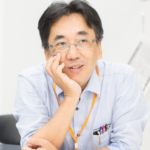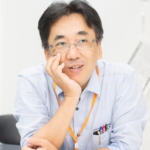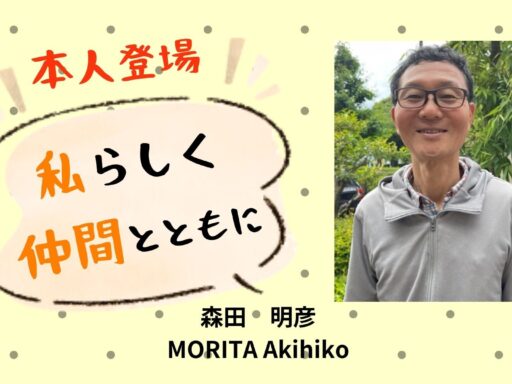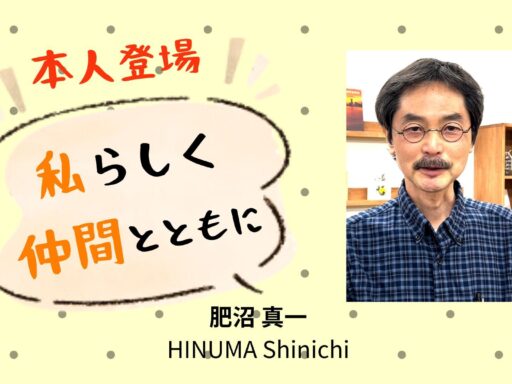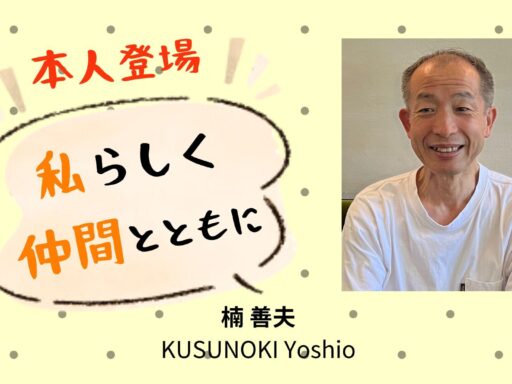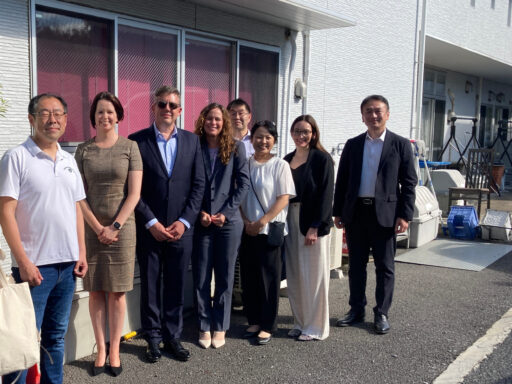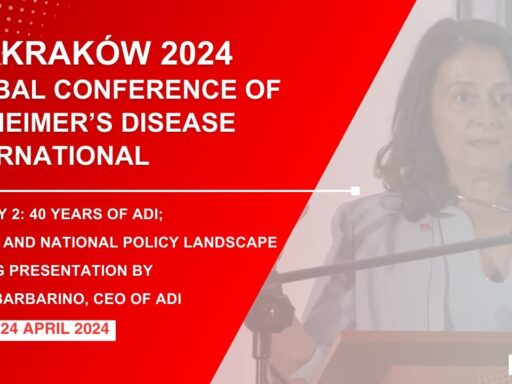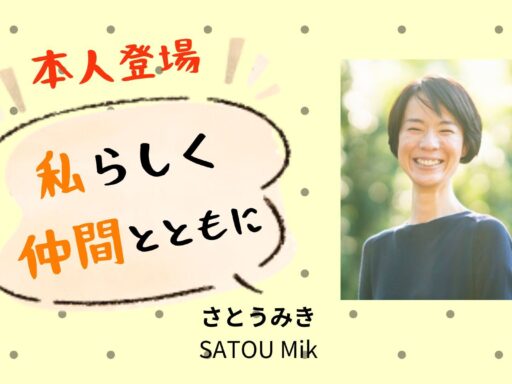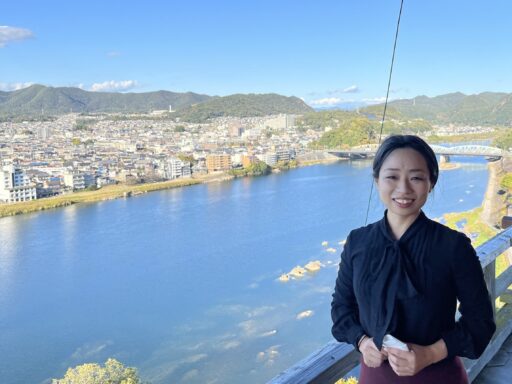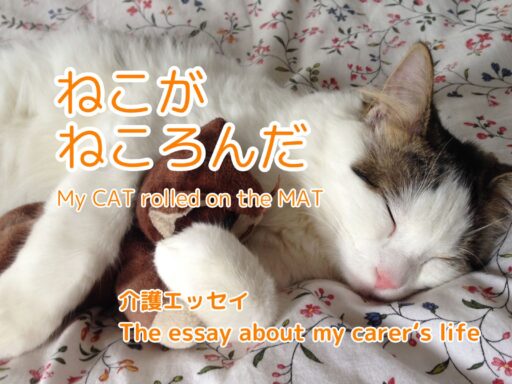Exploring future possibilities across the spectrum of dementia challenges
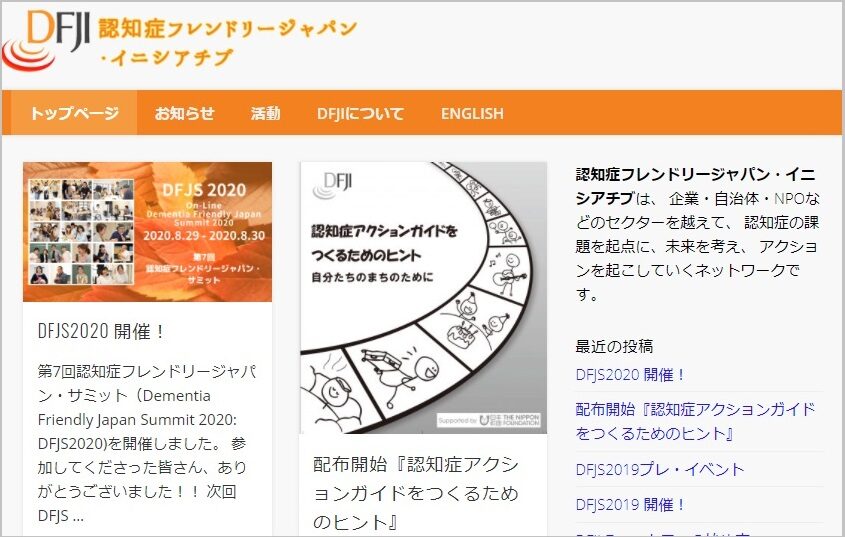
Dementia Friendly Japan Initiative (DFJI)
The Dementia Friendly Japan Initiative (DFJI) regards the issues surrounding dementia as social design issues and goes beyond the framework of medical care, long-term care, and welfare, approaching companies, universities, and local governments. It is a network-type organization where people from various NPOs related and civil sectors gather to explore many future possibilities.
Activities Content
Dementia is a social challenge. The more people see the matter as separate from themselves, the prejudice regarding dementia does not decrease, and there is no discussion progress. In order for everybody, including people with dementia, to live in a comfortable society, The Dementia Friendly Japan Initiative (DFJI) approaches the social issue of dementia with the implementation of activities that bring together the wisdom of many sectors. DFJI’s activities are predecessors of the “Dementia Project” launched by the International University GLOCOM, Fujitsu Laboratories Ltd., and the Dementia Friendship Club. To expand its activities, DFJI was established in 2013, and in 2015 became a non-profit General Incorporated Association.
DFJI holds an annual “Dementia Friendly Japan Summit” to connect the projects to each other. The DFJI summit is a little different from the General Research Presentations Academic Conference. The DFJI summit is placed to resolve and share issues and create new projects. Many of the DFJI projects were born from what was discussed at the summit. Among them, we have set up themes and communities at the DFJI, and they are producing results while performing workshops and sharing information both nationally and internationally.
Representative projects and achievements
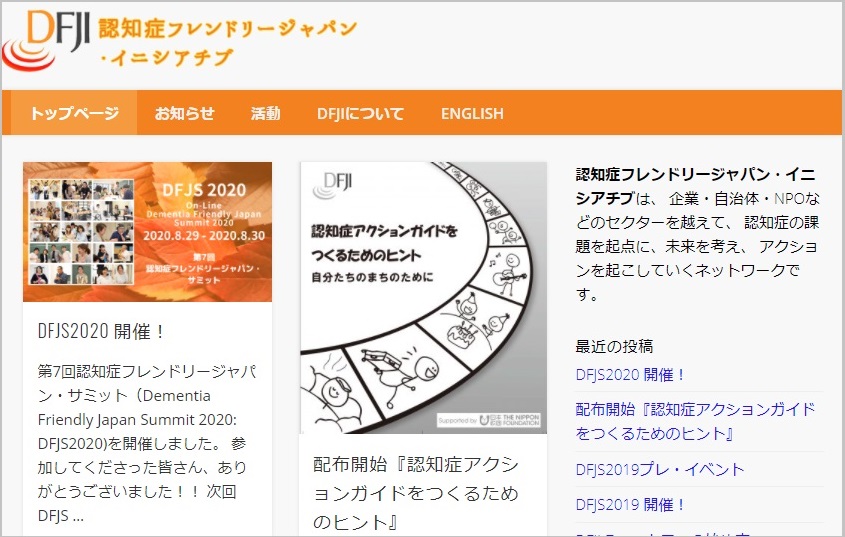
In the “Dementia Projects,” which are the whole body of DFJI, we have created a “Guide for a Friendly Community Development for People with Dementia” together with an international university. We conducted a questionnaire for people with dementia, which is probably the first one in Japan. The British Council held a series of workshops, “Futures: Inspiring Social Innovation,” with Japanese and British companies, to share future issues about the aging society, and from there, the “Fujinomiya Project” was born from pictures of high school students and the community.
In the project “Words for journey,” in collaboration with the Keio University, we applied the concept of pattern language, which was conceived in the architecture field—used for the first time in the world in the welfare area. The result of “Words for journey,” a card, is used as a tool to encourage dialogue in many communities and places in the country. For example, in the field of education, it is used as an instrument for elementary, middle school, high school, and university students to think about living with dementia from their respective generations and perspectives.
The “Dementia Action Guidebook” project is a project held with the cooperation of Kawasaki City. In Japan, each local government is required to create a dementia care pass. The “Dementia Action Guidebook” has become one of the pioneers of dementia care passes from the standpoint of the people with dementia and their families. In the “Indicators of Dementia-Friendly Towns” project, we implemented a methodology to index the quality of local efforts from the bottom up, and in 2017, the World Young Leaders in Dementia (WYLD), together with the Alzheimer’s Association Japan (AAJ) held the “evaluation of Dementia-Friendly areas” workshop. Part of the methodology was also used in the creation process of “16 Machida I statements” in Machida, Tokyo.
The “Dementia-Friendly Transportation” project and the “Dementia-Friendly Libraries” project have expanded their community thanks to the summit. In the “Dementia-Friendly transportation” project, the inquiry of “Dementia-Friendly buses” has created a society where the transportation-related initiatives promoted in various regions are concentrated. In the “Dementia-Friendly Libraries” project, continuous activities are being carried out while moving the place of the community to people involved in libraries and universities.
The ICT (Information and Communication Technology) is also an undeveloped territory in Japan’s welfare area. However, DFJI has been engaged in activities to spread awareness by online video conferences since 2017. Training sessions and meetings through ZOOM were held more than 650 times in three and a half years until February 2021. In that process, the web content created by people with dementia and their relatives was accessed more than 130 thousand times in 2020.
The DFJI also actively supports the activities of other organizations and people. Regarding the “RUN TOMO” event held by the NPO Dementia Friendship Club, young people created the promotional videos and website of “RUN TOMORROW,” including interviews of people with dementia from all over Japan. This activity led to Kawasaki City’s branding movie “COLORS,” which features a person with dementia in Kawasaki City as the protagonist.
From now on
At the DFJI, we believe that we will continue promoting the role of nurturing many projects and communities with people from numerous sectors.
Author’s profile
Makoto Okada: Co-CEO of the Dementia Friendly Japan Initiative. Fujitsu Limited Field Innovator. Co-author of “Traveling with Words, Tips for Living Better with Dementia” (2015, Maruzen Publishing). Visiting Researcher at GLOCOM International University, steering committee of the Information Processing Society of Japan and Aging Society Design Study Group. 2019 Yamashita Memorial Research Award “Multi-stakeholder platform process for dementia-friendly social design.”
